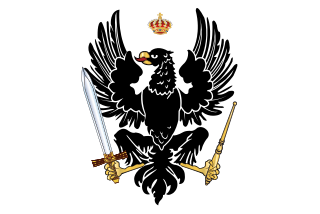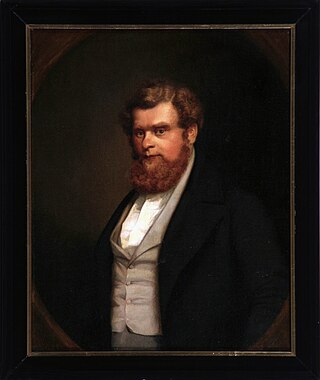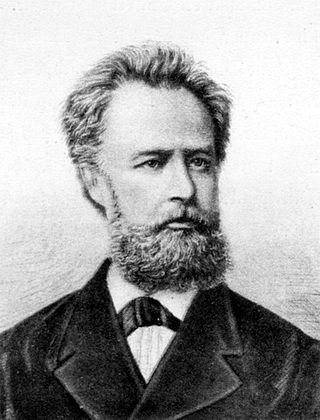
Karl Marx was a German-born philosopher, economist, political theorist, historian, sociologist, journalist, and revolutionary socialist. His best-known works are the 1848 pamphlet The Communist Manifesto and the three-volume Das Kapital (1867–1894); the latter employs his theory of historical materialism in an analysis of capitalism, representing his greatest intellectual achievement. Marx's ideas and theories and their subsequent development, collectively known as Marxism, have exerted enormous influence on modern intellectual, economic, and political history.

The German Confederation was an association of 39 predominantly German-speaking sovereign states in Central Europe. It was created by the Congress of Vienna in 1815 as a replacement of the former Holy Roman Empire, which had been dissolved in 1806.

The Kingdom of Prussia was a German kingdom that constituted the state of Prussia between 1701 and 1918. It was the driving force behind the unification of Germany in 1866 and was the leading state of the German Empire until its dissolution in 1918. Although it took its name from the region called Prussia, it was based in the Margraviate of Brandenburg. Its capital was Berlin. Due to the fact that Brandenburg was the seat of power and prominent part of the entity, the state is also referred to as Prussia-Brandenburg or Brandenburg-Prussia and sometimes erroneously as the Kingdom of Brandenburg or the Kingdom of Nordmark.

The German revolutions of 1848–1849, the opening phase of which was also called the March Revolution, were initially part of the Revolutions of 1848 that broke out in many European countries. They were a series of loosely coordinated protests and rebellions in the states of the German Confederation, including the Austrian Empire. The revolutions, which stressed pan-Germanism, demonstrated popular discontent with the traditional, largely autocratic political structure of the thirty-nine independent states of the Confederation that inherited the German territory of the former Holy Roman Empire after its dismantlement as a result of the Napoleonic Wars. This process began in the mid-1840s.

Wilhelm Martin Philipp Christian Ludwig Liebknecht was a German socialist and one of the principal founders of the Social Democratic Party of Germany (SPD). His political career was a pioneering project combining Marxist revolutionary theory with practical legal political activity. Under his leadership, the SPD grew from a tiny sect to become Germany's largest political party. He was the father of Karl Liebknecht and Theodor Liebknecht.

Georg Friedrich Karl Freiherr von Hertling, from 1914 Count von Hertling, was a German politician of the Catholic Centre Party. He was foreign minister and minister president of Bavaria, then chancellor of the German Reich and minister president of Prussia from 1 November 1917 to 30 September 1918. He was the first party politician to hold the two offices; all the others were non-partisan.

The Forty-Eighters (48ers) were Europeans who participated in or supported the Revolutions of 1848 that swept Europe. In the German Confederation, the Forty-Eighters favoured unification of Germany, a more democratic government, and guarantees of human rights. Disappointed at the failure of the revolution to bring about the reform of the system of government in Germany or the Austrian Empire and sometimes on the government's wanted list because of their involvement in the revolution, they gave up their old lives to try again abroad, emigrating to Australia, the United Kingdom, and the United States. These included Germans, Czechs, Hungarians, and others. A large number were respected, politically active, wealthy, and well-educated, and found success in their new countries.

Robert Blum was a German democratic politician, publicist, poet, publisher, revolutionary and member of the National Assembly of 1848. In his fight for a strong, unified Germany he opposed ethnocentrism and it was his strong belief that no one people should rule over another. As such he was an opponent of the Prussian occupation of Poland and was in contact with the revolutionaries there. Blum was a critic of antisemitism, supported the German Catholic sect, and agitated for the equality of the sexes. Although claiming immunity as a member of the National Assembly, he was arrested during a stay at the hotel "Stadt London" in Vienna and executed for his role in the Revolutions of 1848 in the German states.

A Burschenschaft is one of the traditional Studentenverbindungen of Germany, Austria, and Chile . Burschenschaften were founded in the 19th century as associations of university students inspired by liberal and nationalistic ideas. They were significantly involved in the March Revolution and the unification of Germany. After the formation of the German Empire in 1871, they faced a crisis, as their main political objective had been realized. So-called Reformburschenschaften were established, but these were dissolved by the Nazi regime in 1935/6. In West Germany, the Burschenschaften were re-established in the 1950s, but they faced a renewed crisis in the 1960s and 1970s, as the mainstream political outlook of the German student movement of that period swerved to the radical left. Roughly 160 Burschenschaften exist today in Germany, Austria and Chile.

The Kingdom of Bavaria was a German state that succeeded the former Electorate of Bavaria in 1805 and continued to exist until 1918. With the unification of Germany into the German Empire in 1871, the kingdom became a federated state of the new empire and was second in size, power, and wealth only to the leading state, the Kingdom of Prussia.

For almost five centuries, the German city of Frankfurt was a city-state within two major Germanic entities:

The Grand Duchy of Hesse and by Rhine was a grand duchy in western Germany that existed from 1806 to 1918. The Grand Duchy originally formed from the Landgraviate of Hesse-Darmstadt in 1806 as the Grand Duchy of Hesse. It assumed the name Hesse und bei Rhein in 1816 to distinguish itself from the Electorate of Hesse, which had formed from neighbouring Hesse-Kassel. Colloquially, the grand duchy continued to be known by its former name of Hesse-Darmstadt.

Friedrich Kapp was a German-American lawyer, writer, and politician. He was an outspoken opponent of Germany's colonization fervor during his time as a National Liberal Reichstag deputy. This was exemplified in his speech to the annual Congress of German Economists. Kapp stressed both the unprofitability of colonies and their negative impact on Anglo-German relations.

The revolutions of 1848, known in some countries as the Springtime of the Peoples or the Springtime of Nations, were a series of revolutions throughout Europe over the course of more than one year, from 1848 to 1849. It remains the most widespread revolutionary wave in European history to date.
Paul Frölich was a German journalist and left-wing political activist and author, a founding member of the Communist Party of Germany and founder of the party's paper, Die Rote Fahne. A Communist Party deputy in the Reichstag on two occasions, Frölich was expelled from the Party in 1928, after which he joined the organized German Communist Opposition movement. Frölich is best remembered as a biographer of Rosa Luxemburg.

Karl Marlo, pseudonym of Karl Georg Winkelblech, was a German professor, scientist, chemist and state socialist.
Friedrich (von) Beust, German soldier, revolutionary and political activist and Swiss reform pedagogue, was the son of Prussian Major Karl Alexander von Beust. Beust was born in the Odenwald, in whose great forests, as a young man, he observed Nature in her large and small aspects and collected her creatures. He learned to ride a horse in the royal stables. In 1834, he became an ensign in the 17th Prussian regiment. Under the guidance of a captain, he drew maps in his free time. He entered the division school at Düsseldorf where he was especially interested in geography, which students of Carl Ritter were teaching. He continued his studies of cartography and also science, especially anatomy. In 1845, he was ordered to Fortress Minden, where he came to the conclusion he could not fit into Prussian military discipline, bitterly resigned in 1848, and became a political activist.

Friedrich Wilhelm Schulz was a German officer, political writer and radical liberal publisher in Hesse. His most famous works are Der Tod des Pfarrers Friedrich Ludwig Weidig as well as Die Bewegung der Produktion, which Karl Marx quoted extensively in his 1844 Manuscripts. Schulz was the first to describe the movement of society "as flowing from the contradiction between the forces of production and the mode of production," which would later form the basis of historical materialism. Marx continued to praise Schulz's work decades later when writing Das Kapital.
Revolutionary socialism is a political philosophy, doctrine, and tradition within socialism that stresses the idea that a social revolution is necessary to bring about structural changes in society. More specifically, it is the view that revolution is a necessary precondition for transitioning from a capitalist to a socialist mode of production. Revolution is not necessarily defined as a violent insurrection; it is defined as a seizure of political power by mass movements of the working class so that the state is directly controlled or abolished by the working class as opposed to the capitalist class and its interests.

Wilhelm Christian Weitling was a German tailor, inventor, radical political activist and one of the first theorists of communism. Weitling gained fame in Europe as a social theorist before he emigrated to the United States.

















